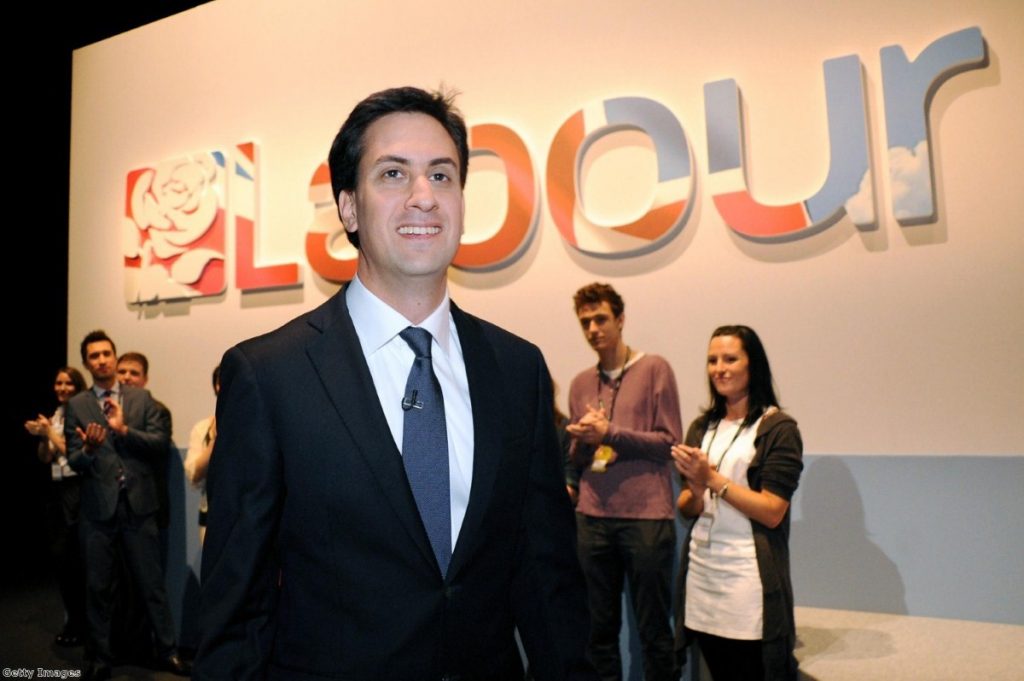Miliband reshuffles the pack
By Alex Stevenson
Chuka Umunna, Stephen Twigg and Rachel Reeves are among the 2010 intake of MPs who have been handed senior jobs in the shadow Cabinet.
Ed Miliband's shakeup follows a change of rules for the shadow Cabinet, after the Labour party backed the leader's request that he be given the ability to choose its makeup. Until now its membership was decided by election.
The leader of the opposition's first reshuffle saw Mr Umunna handed the shadow business portfolio. Mr Twigg becomes shadow education secretary, while Ms Reeves takes on Danny Alexander as shadow chief secretary to the Treasury.


"My decision to appoint half-a-dozen members of the 2010 intake shows the talent that Labour has and the way in which this new generation can join us in taking Labour's agenda forward," Mr Miliband said.
"Together we will show how the government are failing to help families who face a cost of living crisis, how they are failing to take action on energy bills and rail fares and failing to get the economy moving again.
"They will show how we aspire to be a government not for more of the same but to deliver a new bargain for the British people."
Other 2010 intake MPs given jobs include Margaret Curran, who replaces Ann McKechin as shadow Scottish secretary, Liz Kendall, the shadow minister for care and older people, and Michael Dugher, a shadow minister without portfolio.
Meanwhile Caroline Flint has been promoted, taking on the energy and climate change brief. Sadiq Khan – shadow justice secretary – remains unchanged despite speculation that his job was in danger.
Andy Burnham becomes shadow health secretary, having been the Cabinet secretary in charge of the NHS before the general election.
The reshuffle has seen a raft of old New Labour ministers stepping aside, including former shadow health secretary John Healey and shadow business secretary John Denham. The pair quit the shadow Cabinet voluntarily.
Mr Healey, who came second in the 2010 poll, had served as shadow health secretary for the past 12 months. But he has now made clear he wants to step down for family reasons.
In a letter to Mr Miliband, he wrote: "Frontline frontbench politics makes great demands on us all, but even greater demands on our families. They sacrifice a great deal of the time together that for others is what being a family means.
"My family have accepted this for over a decade, and supported me throughout. But for now, I want to be able to give them more during the last couple of years we have left while our son is still with us at home. It is time for me to put them first."
He returns to the backbenches, while shadow business secretary John Denham – another former Cabinet minister who was planning on stepping down – will become Mr Miliband's unpaid parliamentary private secretary.
Mr Denham announced that he would be standing down at the next general election, after marking 30 years as Southampton Itchen's Labour candidate on Sunday.
The new frontbench team face a challenging task. They are the first opposition in history to know the date of the general election years in advance, assuming the coalition does not collapse.
They will also have to combat media attention on divisions within the government, as Mr Healey admitted in one of his final interviews in the job.
Mr Healey's imminent departure for family reasons may have explained his admission that Labour is struggling to get its message across because of the coalition.
"We are not just the official opposition, but the only opposition. What makes that job harder though is the fact that through the media lens the differences between the two parties in government are easier to latch onto," he told Public Servant magazine.
"It is a difficult time to be in opposition because it is hard to make our voice heard and easier for the media to turn to dissenting Lib Dems instead."












